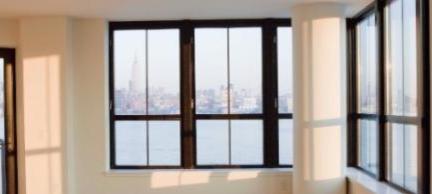Unoccupied Residential Property Insurance Minimising the Risk
Insurance for unoccupied properties and what you need to consider
Unoccupied property insurance can be more expensive than standard building insurance. This is because vacant properties can be subject to risks such as squatters, vandalism or fires. A property is normally considered unoccupied if it has been vacated for more than 30 consecutive days.
If your home becomes unoccupied or is likely to become unoccupied, you should advise your insurer immediately as this may affect the terms of your policy or invalidate your policy completely. Specialist insurance can give you peace of mind and suitable cover that might not be available with a standard policy.
When getting an empty house insured, you should take the following steps:
When getting an empty house insured, you should take the following steps:
Inspect the property regularly
Ensure repairs are done swiftly
Remove all valuables
Secure your property with high security window and door locks
Set the burglar alarm (if there is one)
Turn the heating on or keep it on a frost alert setting during winter
Switch off utilities.
If building work is underway on an empty property, there will be further considerations:
Health and safety of workers on the building site
The extent of the building works being carried out
The duration of the works
Professional competence of contractors carrying out the works
If the contractors are not adequately insured for the work they are carrying out, you could be held liable for any damage or injury they may cause.
Empty House Insurance - Minimising the Risks
Unoccupied insurance is generally more expensive than standard buildings & contents insurance. They are almost invariably an open advertisement to the vandal, squatter or fire-raiser. Houses seem to have a way of proclaiming their empty and unoccupied status from quite a distance, attracting the sort of attention that is generally unwelcome. A nightmare for most run-of-the-mill insurers, therefore, empty house insurance is nevertheless a specialist branch of the insurance market and UKinsuranceNET work with the owners of such properties in minimising the risks to which their properties are exposed.
Empty houses seem like an open invitation to squatters and vandals. Empty houses are also subject to a much higher risk of fire - the London Fire Service, for example, reckons that one in every 10 call-outs they receive is to a fire in an empty property. The dilapidation of an empty house can start in the smallest of ways - just one broken window, for example - yet can quickly escalate. Fires account for almost 40% of the value of all unoccupied property insurance claims we received in 2006.
Although many mainstream home insurers are very reluctant to extend cover for empty houses, therefore, there are some who recognise that a property can fall empty for a number of reasons and for varying lengths of time. Although it is a specialist niche in the insurance market, therefore, empty house insurance provides an indispensable means of protecting a home against the additional and unique risks posed by an uninhabited dwelling. We at UKinsuranceNET have probably the widest range of insurers of unoccupied property in the UK.
The house might have been left empty because the present owner has died and the property is currently subject to probate; it could be between tenants, waiting to be re-let. In which case your existing buy to let insurance policy may not be adequate to cover the period of Unoccupancy; it could be temporarily unoccupied, in a chain of transactions between different home buyers and sellers; or it could be empty whilst in the process of renovation or refurbishment.
In any of these cases, of course, the property continues to represent a substantial asset. The prudent owner, therefore, will continue to need financial protection against the risk of loss or damage to the property. Specialist empty house insurance can offer a surprisingly comprehensive level of cover - despite the property being unoccupied - and can even extend to such risks as theft, malicious damage and vandalism. Of course, there will be certain simple, basic precautions that most such insurers would expect of any careful owner. The chief of these is likely to be a regular inspection of the property to ensure that minor repairs are carried out promptly before they lead to further deterioration and damage.
When a house is empty because it is undergoing renovation, a particular set of additional risks also need to be covered by specialist, empty house insurance. This insurance would need to cover not only the existing structure, but the new works in progress, materials and equipment on site, and the owner's legal obligations towards the health and safety of contractors working on the site, in addition to the owner's public liability. In this regard, of course, the insurers will need to take into account exactly what renovation and refurbishment works are being carried out, how long the works are likely to take, and the professional competence of those involved in the works.
An important feature of empty house insurance, therefore, is that precisely because it is able to offer non-standard cover, it can be tailored and adapted to suit the needs of the particular owner and the specific reasons for the property's temporary vacancy. Since the options for cover are invariably case-specific, many people find that help and guidance from a specialist insurance adviser comes in especially useful.

